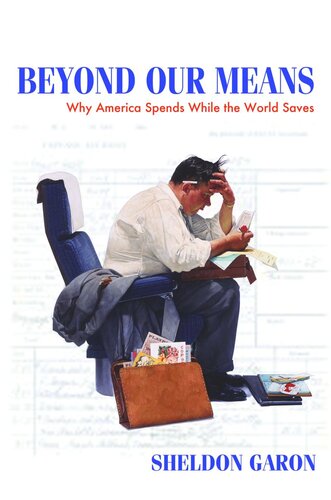

Most ebook files are in PDF format, so you can easily read them using various software such as Foxit Reader or directly on the Google Chrome browser.
Some ebook files are released by publishers in other formats such as .awz, .mobi, .epub, .fb2, etc. You may need to install specific software to read these formats on mobile/PC, such as Calibre.
Please read the tutorial at this link: https://ebookbell.com/faq
We offer FREE conversion to the popular formats you request; however, this may take some time. Therefore, right after payment, please email us, and we will try to provide the service as quickly as possible.
For some exceptional file formats or broken links (if any), please refrain from opening any disputes. Instead, email us first, and we will try to assist within a maximum of 6 hours.
EbookBell Team

4.1
20 reviewsIf the financial crisis has taught us anything, it is that Americans save too little, spend too much, and borrow excessively. What can we learn from East Asian and European countries that have fostered enduring cultures of thrift over the past two centuries? Beyond Our Means tells for the first time how other nations aggressively encouraged their citizens to save by means of special savings institutions and savings campaigns. The U.S. government, meanwhile, promoted mass consumption and reliance on credit, culminating in the global financial meltdown.
Many economists believe people save according to universally rational calculations, saving the most in their middle years as they plan for retirement, and saving the least in welfare states. In reality, Europeans save at high rates despite generous welfare programs and aging populations. Americans save little, despite weaker social safety nets and a younger population. Tracing the development of such behaviors across three continents from the nineteenth century to today, this book highlights the role of institutions and moral suasion in shaping habits of saving and spending. It shows how the encouragement of thrift was not a relic of indigenous traditions but a modern movement to confront rising consumption. Around the world, messages to save and spend wisely confronted citizens everywhere--in schools, magazines, and novels. At the same time, in America, businesses and government normalized practices of living beyond one's means.
Transnational history at its most compelling, Beyond Our Means reveals why some nations save so much and others so little.
Some images inside the book are unavailable due to digital copyright restrictions.